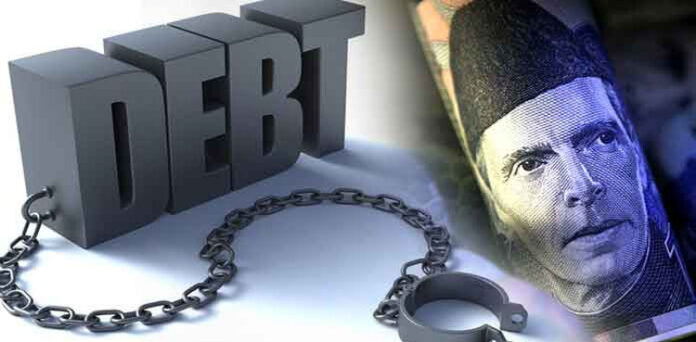The Economic Policy & Business Development (EPBD) think tank has called for a fundamental restructuring of Pakistan’s debt utilization, urging the government to focus borrowed funds on productive economic investments rather than unproductive consumption.
The think tank highlighted Pakistan’s annual Rs7.2 trillion debt burden, which it argues should be used to support growth-generating activities, instead of subsidizing banking profits and inefficient state-owned enterprises (SOEs).
Citing the latest United Nations Development Programme (UNDP) report, EPBD pointed out that the World Bank confirmed Pakistan’s debt is primarily used for consumption rather than investment, further crowding out private sector credit.
The EPBD report emphasized that Pakistan contracts new debt equal to around 28% of GDP annually, yet allocates only 2% of GDP for development spending. The think tank also noted a worsening ratio between current consumption and development spending, which has shifted from 2.2:1 to 10.3:1 over 15 years, signaling a decline in productive investment.
EPBD criticized Pakistan’s current approach, which it claims wastes borrowed capital on guaranteed banking returns through government bonds and SOE subsidies, with no economic returns. Instead, the think tank proposed redirecting debt toward manufacturing expansion, export infrastructure, technology adoption, and private sector development, which would generate employment and sustainable returns to service future obligations.
The report also pointed out that Pakistani businesses face financing costs of 11%, compared to the regional average of 5.5%, which makes them uncompetitive. Meanwhile, banks earn guaranteed profits from public funds. EPBD suggested reducing policy rates from 11% to 6%, which could generate Rs3 trillion annually, redirecting these funds toward productive economic activities.
According to the World Bank, Pakistan achieved a primary surplus in fiscal year 2025, which the EPBD sees as an opportunity to redirect debt resources away from consumption and toward manufacturing and export development, which would help improve Pakistan’s debt-servicing capacity.
EPBD also noted that regional competitors have been more successful by using debt to support business development and industrial expansion, resulting in annual growth of 6%. They achieve this by directing debt to value-creating activities, unlike Pakistan’s focus on financial institutions and SOE subsidies.
The think tank emphasized that Pakistan must choose between continuing its current approach, which enriches financial institutions and SOEs, or shifting towards a productive use of debt that builds the country’s economic capacity. It called for an immediate policy realignment to prioritize manufacturing development, export infrastructure, and private sector expansion for long-term economic sustainability.




